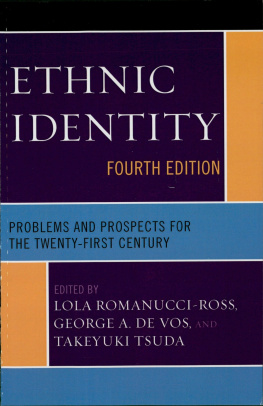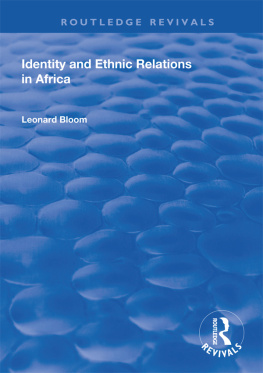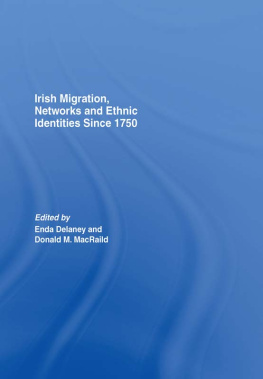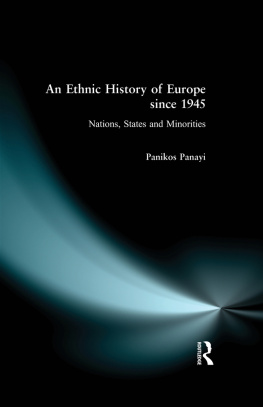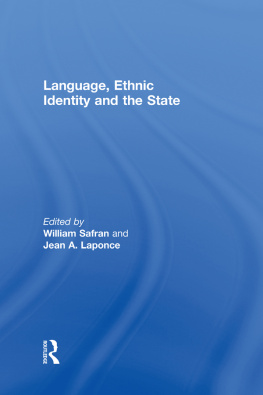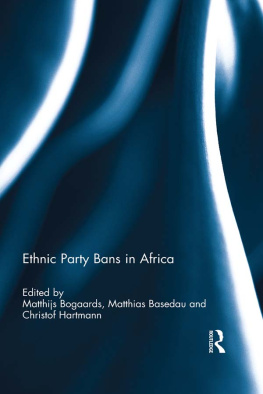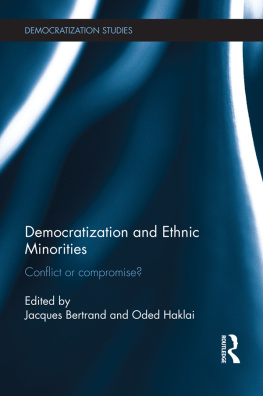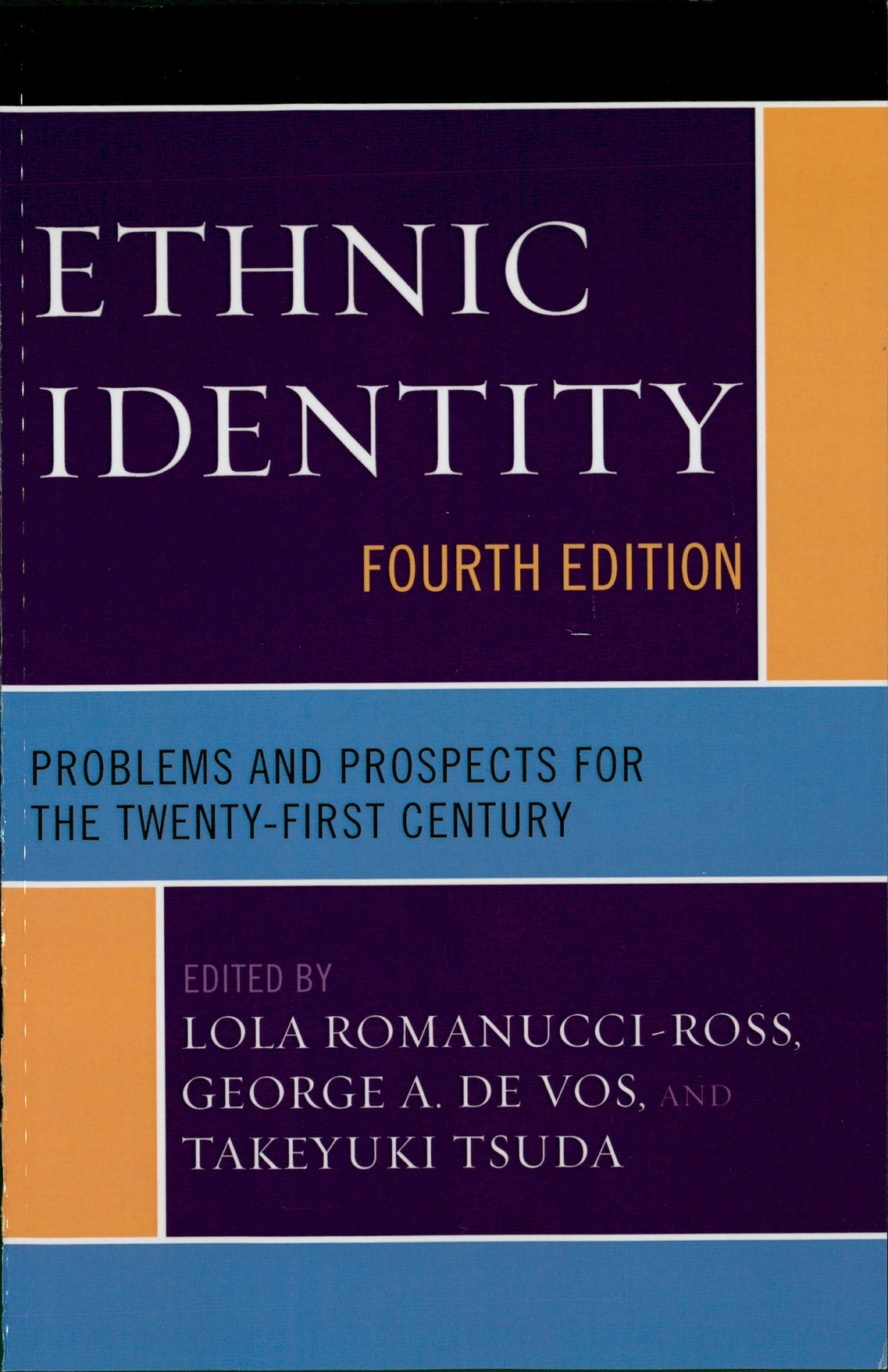GEORGE A. DE VOS AND LOLA ROMANUCCI-ROSS
I N CONCLUSION, WE RECAPITULATE and integrate a number of themes and theoretical arguments presented in the foregoing chapters.
Most observers of ethnicity today are not only interested in how ethnicity still totally defines citizenship in national states, but rather in how it remains a question of relative acceptance or derogation among those of separate origins who have technically become citizens in a multiethnic modern state. Historically, the question is sometimes who is actually included in the majority and which groups are constrained to be minorities in a composite national entity.
Where Are We From? Causality and Continuity
As discussed in chapter 1, ethnic identity is in essence a past-oriented form of identity, embedded in the presumed cultural heritage of the individual or group. This form of social self-identity contrasts with a sense of belonging linked with citizenship within a political state, or present-oriented affiliations to specific groups demanding professional, occupational, or class loyalties. It also contrasts with those identities that reject both past and present in favor of a future-oriented ideological commitment to a realizable future social goal.
To know ones origin is to have not only a sense of provenience, but perhaps more importantly, a sense of continuity in which one finds the personal and social meaning of human existence to some degree. It is to know why one behaves and acts in accordance with custom. To be without a sense of continuity is to be faced with ones own death.
Extinction of a group occurs when, as a California Indian once remarked to anthropologist Alfred Kroeber, the bowl of custom is broken and we can no longer drink of life. Ethnicity can most readily be symbolically represented contrastively. It may involve self-consciously perceived variations in language and customs from others. It may be symbolized in affirmative ritual practices such as dramatic symbolic representations recalling past collective ordeals or days of heroic triumph. Ethnicity is explained by religious myth, since religious beliefs or myths are, in effect, very often attempts to explain group origin and group continuity.
Two alternate forms of myth occur as widespread explanations of origin among peoples of the world. These are autochthonous myths of human origin from a given sacred place and, alternatively, religious myths that dramatize the journeyan event buried in the distant past. Myths explaining origin buttress a conviction that ones group arrived here from elsewhere. Origin, in this sense, has a spatial, territorial dimension. Ones idea of social meaning is also temporal. A feeling of social belonging also obtains from moving through time or territory, both as an individual and as a member of a group and a culture. Traditions characteristically present a script for group continuity from the past into the future, carefully perpetuating factual fictions or fictional facts as links that bind generations.
Concern with origins is a concern with parentage. To know who they are, individuals and groups look back genealogically to their progenitors and possibly eponymous ancestors. Some mythologies explain how men and women descended from a primordial mating event; others explain group diversity as totemic, where human subgroups are descended from different animals or plants.
In Judeo-Christian mythology, the Tower of Babel marks the origin of linguistic diversification by punitively dividing groups from each other for their presumption to wish to reach up to the heavenly creator. Mythological explanations of origin help explain present differences between groups as well as providing the rationale for such differences.
Curiously, a number of mythological traditions indirectly reveal the converse. They are attempts by a cultural group, for the sake of present cohesion, to deny previous diversity of origin by disguising evidence of past amalgams that occurred through conquest. Greek myths excel in disguising past conflicts, including changes from matrilineal to patrilineal descent as a result of conquest, into an organized Olympic Pantheon. The book of Genesis in the Hebrew Bible, according to Freud, disguises the several separate tribal origins of Jews with different gods who were united in monotheistic allegiance. Genesis gives internal evidence suggesting that there occurred a blending of two or more deities (Elohim) into one Yahweh. Similarly, the Japanese mythology preserved in the Kojiki and Ni-hongi gives ancient and internal evidence that prior political conflicts were resolved religiously by producing a more unified, accommodatively organized pantheon of deities. Religion is regulation. It is purpose. It is destiny. It maintains order and prevents an entropic reversion to primal chaos. An ethnic identity exists in a moral universe.
What Must We Do? Moral Control and Ethnic Belonging
Origin myths establish who one is, and, because of ones progenitors, with which group one has rights and obligations. Such knowledge helps individuals resolve priorities of loyalty and allegiance in terms of a past frame of reference. It helps to integrate and regulate ones behavior. It defines the classes of persons to whom one can express affection or vent aggression. It indicates those who deserve respect and those who are to be derogated. The sense of history is celebrated in collective ritual. Ritual acts are also expressions of commitment, be it to a religion, to a nation of loyal citizens, or to an ethnic group. Such acts are a collective experience that teaches those who participate who they are. The redundancy of ritual goes beyond verbal expression, reinforcing emotional response and allowing participants to identify with one another in sharing an explicit sense of purpose. Rituals of belonging can be dramatizations of ancestral suffering and triumph, out of which future purpose is born and sustained. For example, for the Jews, the sacred holidays commemorate historical occurrences that reaffirm reasons for continuity. The communion ritual for Christians (ingesting the body of Christ from a common vessel) represents both the historical fact of the beginning of Christianity and the sense of belonging to a group that moves forward with a purpose to the Last Judgment.
In modern societies, as in folk cultures, the reasons for present rules can be explained by past mythology. Taboos of food and other constraints on behavior are explained in terms of past occurrences, usually a specific mythologized event. It seems that humans always have to know why something is or is not done, and mythology provides the explanations that justify required behavior. Many of the historical occurrences that are ritualized or become legend tend to be symbolic victories of survival or attempts at revival. In Native American history, the Ghost Dance was the revivalist ritual of a defeated people. Today the massacre at Wounded Knee and the long bloody forced marches of Native American families from their eastern homes into western reservations are tales of ordeal that stimulate a need for survival by the maintenance of group consciousness.
Revivalist movements and legends of ordeal are affirmations of the state of affairs that existed before a traumatic defeat that has marked a people, symbolizing a temporal extension backward to a time of group strength that existed before defeat. As we indicated in the introduction, the contemporary militant black movement among African Americans in the United States contains an explicit and an implicit affirmation of a dignified and respected African identity as a point of origin.

